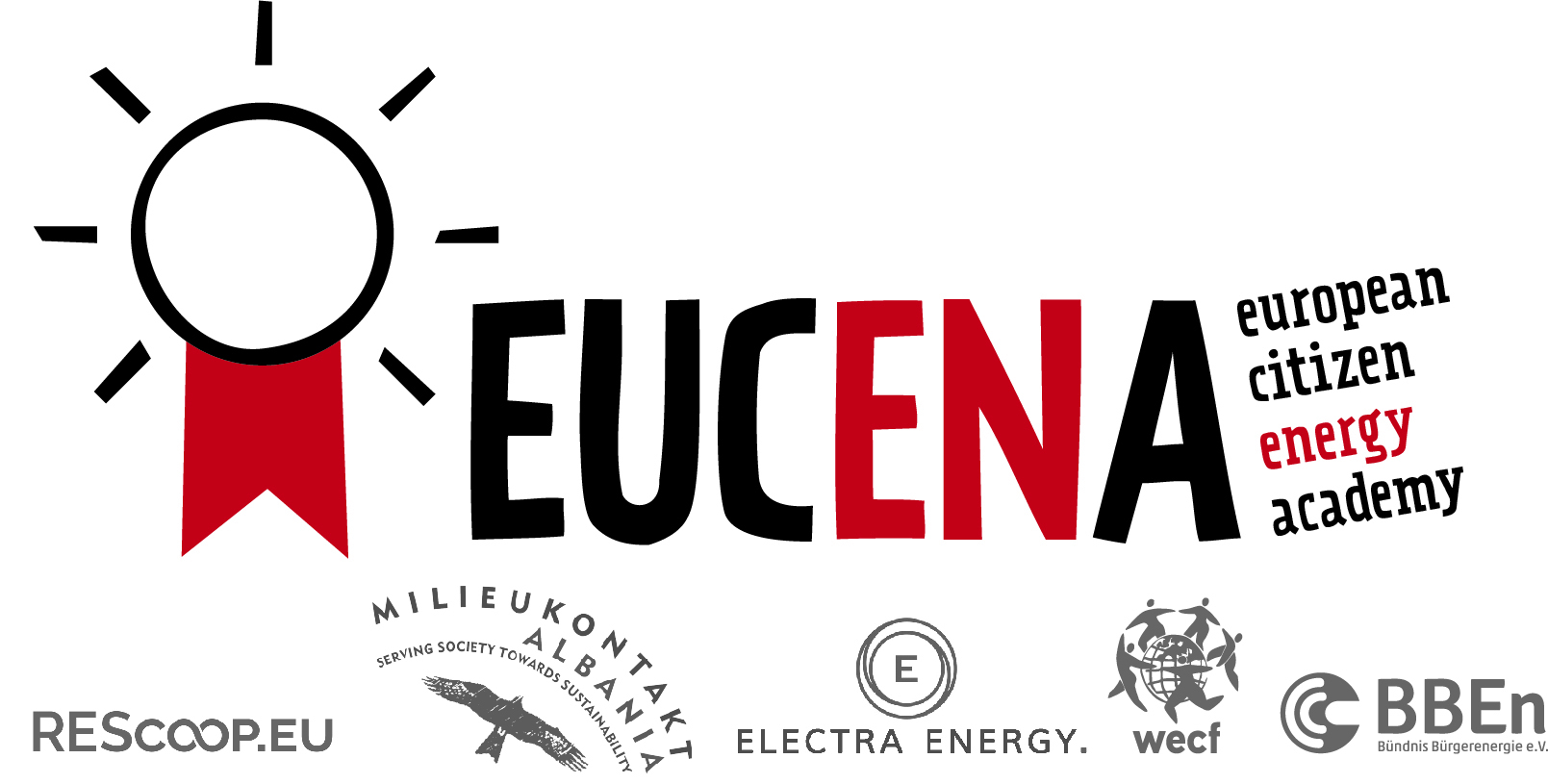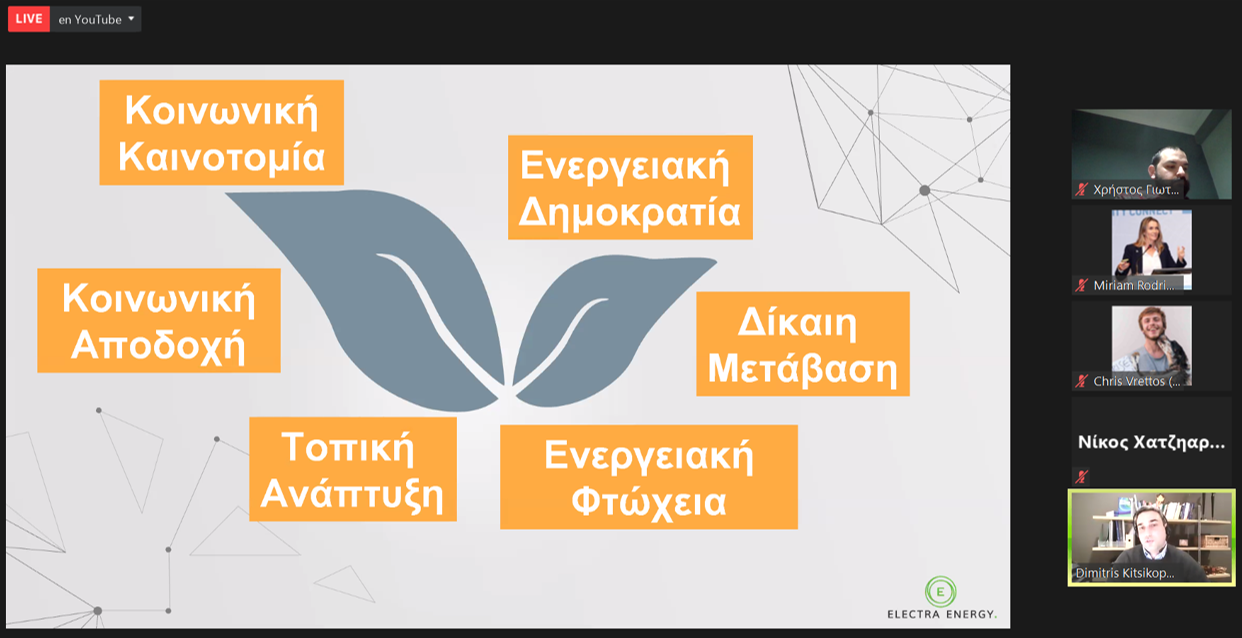Building an Energy Community in Epirus
On Thursday, the 25th of February, Electra Energy Cooperative, together with researchers from Smart Rue lab of the National Technical University of Athens, representatives from P2P lab and REScoop.eu, organized a workshop on energy communities specifically addressed to residents of the Epirus region in the North-West of Greece. With more than 100 participants and a lively discussion, the event can be considered quite successful.

Summary of the event
The event kicked off with a broad overview presentation of the current, fossil-based, centralized energy system in Greece, which is slowly being replaced by an emerging, mainly large-scale, renewables regime. Such a large-scale renewable infrastructure might be partly well-suited to address the climate crisis, but it leaves the existing power structures and inequalities untouched. At the same time, this may create new types of socio-ecological degradation across the embedded international supply chains. The impact of technological infrastructure on the local environment is especially important for Epirus, a region that largely relies on the primary sector of the economy (agriculture) and eco-tourism. In fact, Epirus is a region where socio-economic conflicts against large-scale energy infrastructures have been playing out over the past few years.
Situated between the current unsustainable energy regime, and an upcoming, diverging, yet still problematic alternative future energy regime, energy communities may offer a third pathway towards a clean, decentralized and democratic energy system. Legally recognized by the EU through a revision of the Renewable Energy Directive (RED II) in 2018, and similarly endorsed as a powerful tool towards tackling energy poverty, energy communities are widely recognized for their transformative potential as part of the social and solidarity economy. Despite a progressive national legal framework (Law 4513/2018), recent changes to the law have created a climate of uncertainty around the future of energy communities in Greece. And a key obstacle that remains is the lack of any institutionalized funding mechanism. These reasons could partly explain why Epirus is still lagging behind in the race to create energy communities across the country
The speakers in the workshop highlighted the various benefits that energy communities can offer despite this multitude of challenges. These benefits involve, among others, local development, social innovation and experimentation with different renewable technologies and hybrid configurations, tackling energy poverty, contributing to a just transition, and increasing social acceptance of renewable energies. Upon learning about these benefits, participants expressed great interest in the formation of a potential energy community in Epirus, while remaining realistic about the responsibilities of such a process (e.g. time commitment, bureaucracy, etc.).
Participants also stressed the importance of engaging local groups and ensuring that the renewable energy infrastructure is appropriately integrated into the local environment. Participants also identified the formation of partnerships and collaborations (e.g., with a local municipality or university), as key enabling conditions for the success of an energy community.
Although this event only covered some introductory aspects of setting up an energy community, it has also set an important precedent as the officiation of a broader dialogue on energy democracy in the region. At the end of the presentations, participants were presented with a form to express their potential interest in carrying this discussion forward and springing into action. Thus, we hope that we have planted the seed of ‘energy democracy thinking’, and as organizing partners of this event, we are ready to proactively engage with the local community and start taking the practical steps of setting up an energy community in Epirus!

About EUCENA
This workshop was held in the context of the EUCENA project. EUCENA supports the citizen energy movement throughout Europe by fostering knowledge creation and transfer between Southeast and Central Europe. Specifically, it provides knowledge and tools on community building, development, and cooperation between communities. EUCENA is supported by the European Climate Initiative (EUKI) of the German Federal Ministry for Economic Affairs and Climate Action (BMWK).
